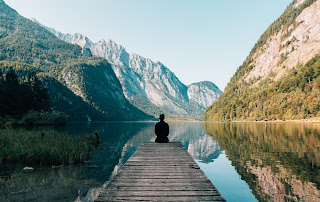TRAVEL FOR GOOD
Travel can inform and educate, as well as connect people from all over the world. Through
travel, people have the capacity to change the world for the better. Read how these socially
conscious individuals are using travel to affect change around the world.
A New York City high school student is bringing adventure to a new generation. Every traveler knows that learning some of the local language is part of the fun of visiting new places. But
frontside flipslide ... backside crooked-grind ... kickflip? This is the language of the skateboarding world. It's what has permitted 15-year-old Of young people. Viewers Can Booker Mitchell hosts "Booker Travels," an go to his website and follow the star as he navigates online video series that explores destinations different countries by skateboarding and surfing with through teenage eyes.
local kids. "Travel shows for grown-ups have these
really excited hosts who talk about museums," says Mitchell. "Our motto is 'Live Life Outside'
20 and we're trying to show how young people really live."
These online episodes show the gregarious teen as he visits new places, makes friends,
and discovers the music, art, food, and geography of different countries. His mother says,
"Ever since he was little, Booker kept journals. Wherever we traveled, I took videos. One day
we realized we were documenting the world as a kid experiences it." And with each trip
25 comes new revelations. one recent expedition to the Amazon taught Mitchell an especially
important lesson. "You wouldn't expect anyone in the Amazon to know how to skate. But I
made friends and realized that even in the middle of nowhere, kids live the same way I do.
Lesson learned: Always bring my board with me!"
Across a continent
Two adventurers are walking across a continent to raise money for clean water.
When travelers speak of doing a trip from Cape Town to Cairo, one thing seems certain:
They're not talking about walking. But a pair of adventurers is doing just that. Amy Russell
and her teammate Aaron Tharp are walking the 11,000-kilometer stretch from South Africa to
Egypt, with the aim of finishing their journey in two years. They are raising money for Charity:
35 Water, an organization that delivers clean water to people in developing countries.Russell, 24, says that her two-year adventure is the most direct way of documenting the effect that clean water can have on remote communities. It also benefits some of the 800 million people on the planet who don't have access to safe water. Russell uses her blog to describe the trip's highs and lows, discussing everything from border crossings to obscure food to different perspectives on the AIDS crisis in Africa. When asked what inspired her to take on the challenge, Russell replied: "I have strong convictions about fighting injustice and poverty in sustainable ways, which led me to be an advocate for Charity: Water. I saw this trip as a potential way to support them and help end the world Water Crisis.Russell rejects the idea that travel is temporary and that its effect is
short-lived. "I think travelers should be advocates. If you see a situation
that needs help, get involved with an organization that gives voiceto the people you met. When you let your travel experiences change you and return home
with your new mind-set, you'll be a better person for it, and in turn create a better world
everywhere you go in the future
Clever Risks, Great Rewards
one man is finding creative ways to raise-money for the causes he believes in. Deep sea caves, towering cliffs, migrating whales:
Tasmania's ·raw beauty sets the perfect stage for
ecotourism. For Robert Pennicott, a tour operator,
the Tasmanian coast is also the reason he got into
philanthropy, having co-founded a coastal conservation fund in 2007. In its first year, the fund helped save
more than so,ooo seabirds from attacks from wild cats.
This initial success turned Pennicott into a daringly
innovative philanthropist. In 2011, he circled Australia
in a rubber dinghy1 to raise money for research into eradicating polio.2 The trip took 101 days and injected
nearly $300,000 into the polio vaccination fund, proving
that clever risks can produce great rewards."When I die, I want to have made a difference in the world," says Pennicott, who gives at least ·
a quarter of his tour company's profits to conservation and humanitarian issues. "Every little bit helps, and a lot of little contributions add up to make a big difference," he says.
Pennicott will soon bring his polio philanthropy to Afghanistan, Pakistan, and Nigeria, the
last three countries where the disease remains widespread. His latest project brings him
closer to home-he's working to rid the ocean of plastic trash. "The scale of this problem
is enormous," he says. About 100,000 marine animals and a million seabirds each year are killed after eating or being caught in plastic. Pennicott says travelers can do their part by
choosing responsible tour companies that invest in conservation

Comments
Post a Comment